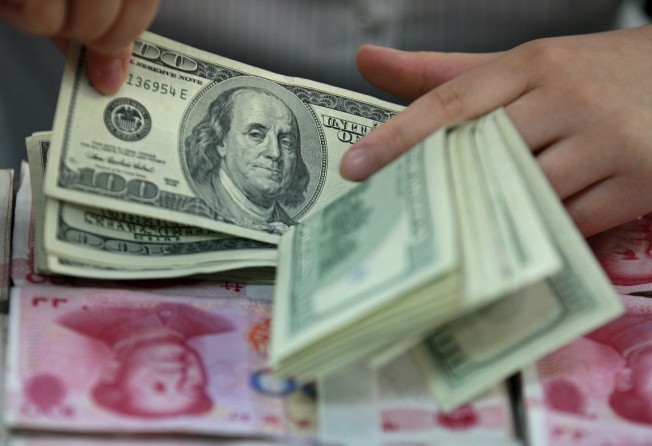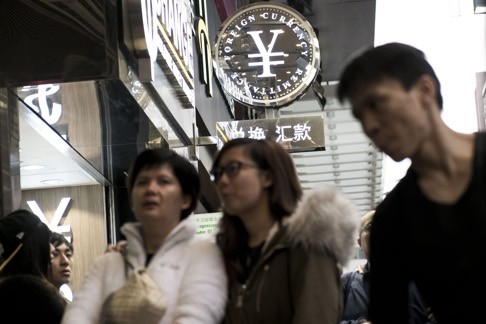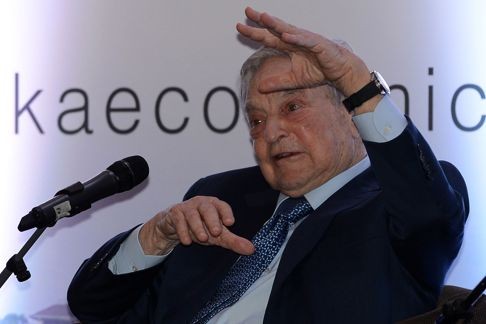China elites likely playing a bigger role in short selling yuan than foreign ‘crocodiles’
Pressure on the yuan traded in Hong Kong can be traced to state-owned enterprises and other well connected individuals on the mainland

It is a defence of yuan. It is a battle between China and international speculators. It is triumph of the good over bad. So the mainland media said about this week’s currency saga.
Is that so?
They said international “crocodiles”, a nickname for speculators like George Soros, have milked the yuan on two fronts.
One theory is the “crocodiles” brought cheap yuan in Hong Kong and sold high in the mainland. Given that the onshore rate was 2,000 basis points above the offshore rate, they ripped a 3 per cent easy gain.
“That is 0.2 yuan gain for every US dollar bet. That in and out was done many times a day. Multiply that with high leverage, the gain ballooned to four to five yuan (per dollar),” said a mainland newspaper.
That sounds easy, there is a major assumption though - renminbi is a freely convertible currency that anyone can bring in and out of China hassle free.
It’s not.
Ever since 2013, thanks to the snowballing carry trade, movement of renminbi across the border has been subject to stringent supervision.
Piles of trade and shipping documents have to be submitted to prove the money transfer is needed for genuine trade deals.

Monitoring that is not just the State Administration of Foreign Exchange but also the Hong Kong Monetary Authority which would spend months tracing the papers in one single bank.
How the international crocodiles could have done the unlimited cross border yuan transfer described is puzzling. Not many speed boats have been found zooming between the city and the mainland.
Yet, we do know that one class is maestro at manipulating the border control - state enterprises as well as friends and families of senior officials.
Theory two suggested is no better. It said the “crocodiles” borrowed the yuan and sold it. As the yuan nose-dive, they brought it cheaper for repayment, making mouth-watering exchange gain.
It reads like the script of the 1998 attack on the Hong Kong Dollars. Yet, there are some major differences between the yuan and this city’s currency that would have weighted on any bet by a foreign player.
One, accumulating a reasonable size of a controlled currency is not easy. It has taken the “crocodiles” six months to accumulate enough Hong Kong dollars from the locals and super bond issuers such as Asian Development Bank before firing the shot in August.
Two, despite a daily settlement size of one trillion yuan, the yuan liquidity remains tight. The six liquidity provider banks have nowhere to source yuan other than those received as payment and facilities provided by the HKMA.
Many would still recall the pain from the liquidity squeeze and inter-bank rate hike in late August.
Three, since the Bank of China is the only mandated clearing bank for yuan, the PBOC would have some idea of what is going among individual banks, though an imperfect one of any single bank’s foreign exchange accounts. However, an international bank accumulating a significant position over months would not be left unnoticed.
Fourth, the cost of borrowing yuan in Hong Kong has never been cheap, hovering above 3 per cent.
To make the successful attack, one must have ample supply of yuan at a very low cost; a cover that would ring no bell with a significant yuan position; and a belief that he or she knows where the wind is blowing in Beijing.

How about this? A general manager of the subsidiary A of a state firm sold 500 million yuan via an international dealer for a quick personal gain.
He has his peers in subsidiary B of that state firm agreeing to give him 500 million yuan from the corporate account. He makes an over-night deposit promising a 20 per cent interest rate.
If the yuan goes down, he got both the exchange rate change and the deposit rate. If not, he still has the deposit interest to mitigate the exchange loss.
Since it is an intra-group movement of money, there are dozens of ways to eliminate any trace of the transaction.
This is just a scheme of the least complexity. Throw in derivatives and leverage, it is a different world.
Of course, it would be wrong to say that the international players have no role in the recent currency attack. Yet, like the stock market crash in June, the attack has its roots in the country’s own men.
So, like the stock market crash in June, we may soon see mainland regulator or even policemen looking for the culprits. Be prepared for more arrests.